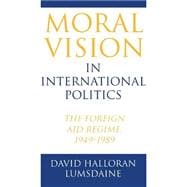
Note: Supplemental materials are not guaranteed with Rental or Used book purchases.
Purchase Benefits
What is included with this book?
| List of Tables and Figures | |
| Acknowledgments | |
| Abbreviations | |
| The Argument | |
| Do Morals Matter in International Politics? | p. 3 |
| Why Was There Any Foreign Aid at All? | p. 30 |
| The Evidence | |
| Where the Money Went: Who Were the Main Recipients of Aid? | p. 73 |
| Who Paid the Bill: Similarities and Differences among the Donors | p. 104 |
| Who Advocated Aid: Supporters and Opponents of Development Assistance | p. 137 |
| What Prepared the Way: Historical Antecedents of Aid | p. 182 |
| How Aid Grew: Development of Regular Aid Programs | p. 221 |
| How Aid Changed: Ongoing Reform in the Foreign Aid Regime | p. 253 |
| Conclusion | |
| How Shall We Then Live? | p. 283 |
| Notes | p. 295 |
| Bibliography | p. 325 |
| Index | p. 343 |
| Table of Contents provided by Publisher. All Rights Reserved. |
The New copy of this book will include any supplemental materials advertised. Please check the title of the book to determine if it should include any access cards, study guides, lab manuals, CDs, etc.
The Used, Rental and eBook copies of this book are not guaranteed to include any supplemental materials. Typically, only the book itself is included. This is true even if the title states it includes any access cards, study guides, lab manuals, CDs, etc.